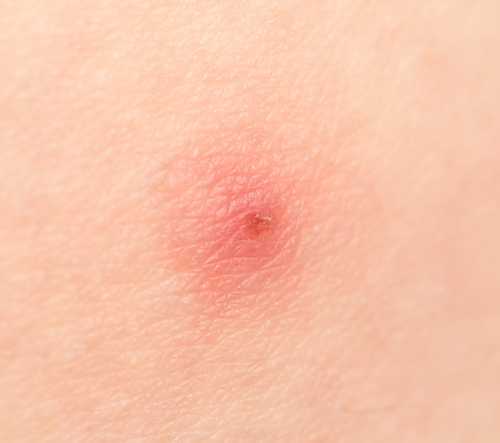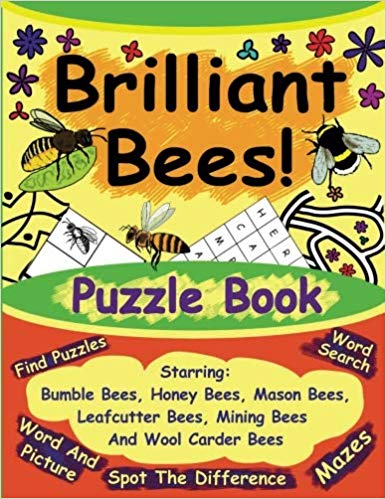Where Do Bee Stings Hurt Most?
Visitors to this page may be surprised to learn that several scientists have explored the topic of insect sting pain, including pain from bee stings.
Within this research, they have sought to answer such questions as:
Where do bee stings hurt most?
Which insects (specifically hymenoptera) give the most painful sting? and
How long does the pain from a sting last?

Where do bee stings hurt most? ...and other questions
Of course, not all bees sting.
However, a scientist, Michael L. Smith from the Department of Neurobiology and Behavior, Cornell University, USA set out to answer this question in 2014 using the honey bee, Apis mellifera as a reference point1.
The author subjected himself to stings from the honey bee in 25 locations on the body (three times in each location), and rated the pain on a 1–10 scale (10 being the most painful), relative to the pain felt on the forearm.
The most painful location was the nostril (a score of 9.0) followed by the upper lip (a score of 8.7).
The three least painful locations were the skull, middle toe tip, and upper arm (all scoring 2.3).
Here are the results in detail:
| Body Location | Average Pain Rating |
|---|---|
| Nostril | 9 |
| Upper lip | 8.7 |
| Penis shaft | 7.3 |
| Armpit | 7 |
| Cheek | 7 |
| Palm | 7 |
| Scrotum | 7 |
| Abdomen | 6.7 |
| Middle finger tip | 6.7 |
| Nipple | 6.7 |
| Top of the foot | 6 |
| Back of the neck | 5.3 |
| Behind the ear | 5.3 |
| Top of the hand | 5.3 |
| Foot arch | 5 |
| Forearm | 5 |
| Back of the knee | 5 |
| Upper thigh | 4.7 |
| Wrist | 4.7 |
| Lower back | 4 |
| Buttock | 3.7 |
| Calf | 3.7 |
| Skull | 2.3 |
| Middle toe tip | 2.3 |
| Upper arm | 2.3 |
It should also be mentioned, however, that stings around the nostril, eye and ear can be dangerous, especially in children and also in the event of a severe reaction or allergy. Please see your doctor for assistance.
How painful are bee stings?
So now you know which areas of the body are likely to hurt most if they are stung by a bee - but how badly does a bee sting hurt?
It turns out that bee stings are not particularly painful, relative to stings from other invertebrates. How do we know?
Justin O. Schmidt of Southwestern Biological Institute, Tucson USA has investigated the whole subject of hymenoptera stings and their venom, in relation to pain and related topics such as defense against predators. Schmidt ranked pain from 1 to 4, with 4 being the most painful2.
Of the 18 bees graded for their sting, 9 of them had a score of 1 or 1.5. The most painful sting was rated 2.5. Two species of Tarantula hawk wasp and a bullet ant all had a pain rating of 4.
Below are the results for the bee stings given a pain index in the study.
| Species | Sting Pain |
|---|---|
| Xylocopa sp. (giant Bornean bee) | 2.5 |
| A. mellifera (honey bee) | 2 |
| A. dorsata (giant honey bee) | 2 |
| A. cerana (Eastern honey bee) | 2 |
| Bombus impatiens (bumble bee) | 2 |
| B. sonorus (bumble bee) | 2 |
| Xylocopa rufa (nocturnal carpenter bee) | 2 |
| X. californica (carpenter bee) | 2 |
| Apis florea (dwarf honey bee) | 1.5 |
| Euglossa dilemma (orchid bee) | 1.5 |
| Xenoglossa angustior (squash bee) | 1 |
| Habropoda pallida (white-faced bee) | 1 |
| Diadasia rinconis (cactus bee) | 1 |
| Emphoropsis pallida | 1 |
| Lasioglossum spp. (sweat bee) | 1 |
| Ericrocis lata (cuckoo bee) | 1 |
| Dieunomia heteropoda (giant sweat bee) | 0.5 |
| Triepeolus sp. (cuckoo bee) | 0.5 |
How long does a bee sting hurt?
You may want to know just how long the pain from a bee sting is likely to last.
It turns out, not for too long, with around 10 minutes being the maximum, and in general for those bees delivering a more painful sting. Otherwise, the pain lasted around 2 minutes.
Bullet ants, on the other hand, are best avoided! The pain from a bullet ant sting could last about 300 minutes!
Read more about why bee stings hurt.
References
1. Smith ML. 2014. Honey bee sting pain index by body location. PeerJ 2:e338
2. Schmidt JO. Pain and Lethality Induced by Insect Stings: An Exploratory and Correlational Study. Toxins (Basel). 2019;11(7):427. Published 2019 Jul 21.
3. Schmidt JO (1990) Hymenoptera venoms: striving toward the ultimate defense against vertebrates. In: Evans DL, Schmidt JO (eds) Insect defenses: adaptive mechanisms and strategies of prey and predators. SUNY Press, Albany, NY.
